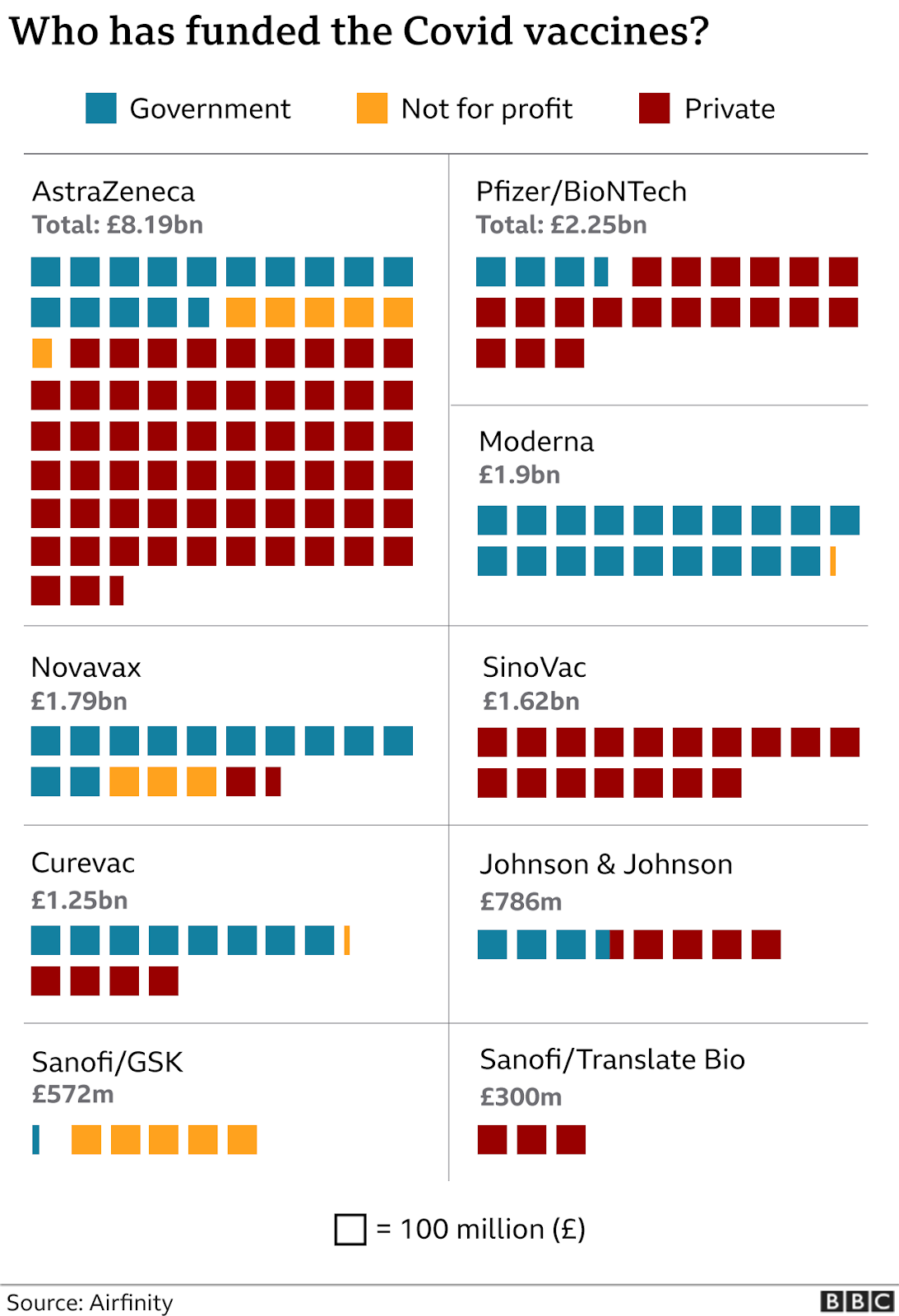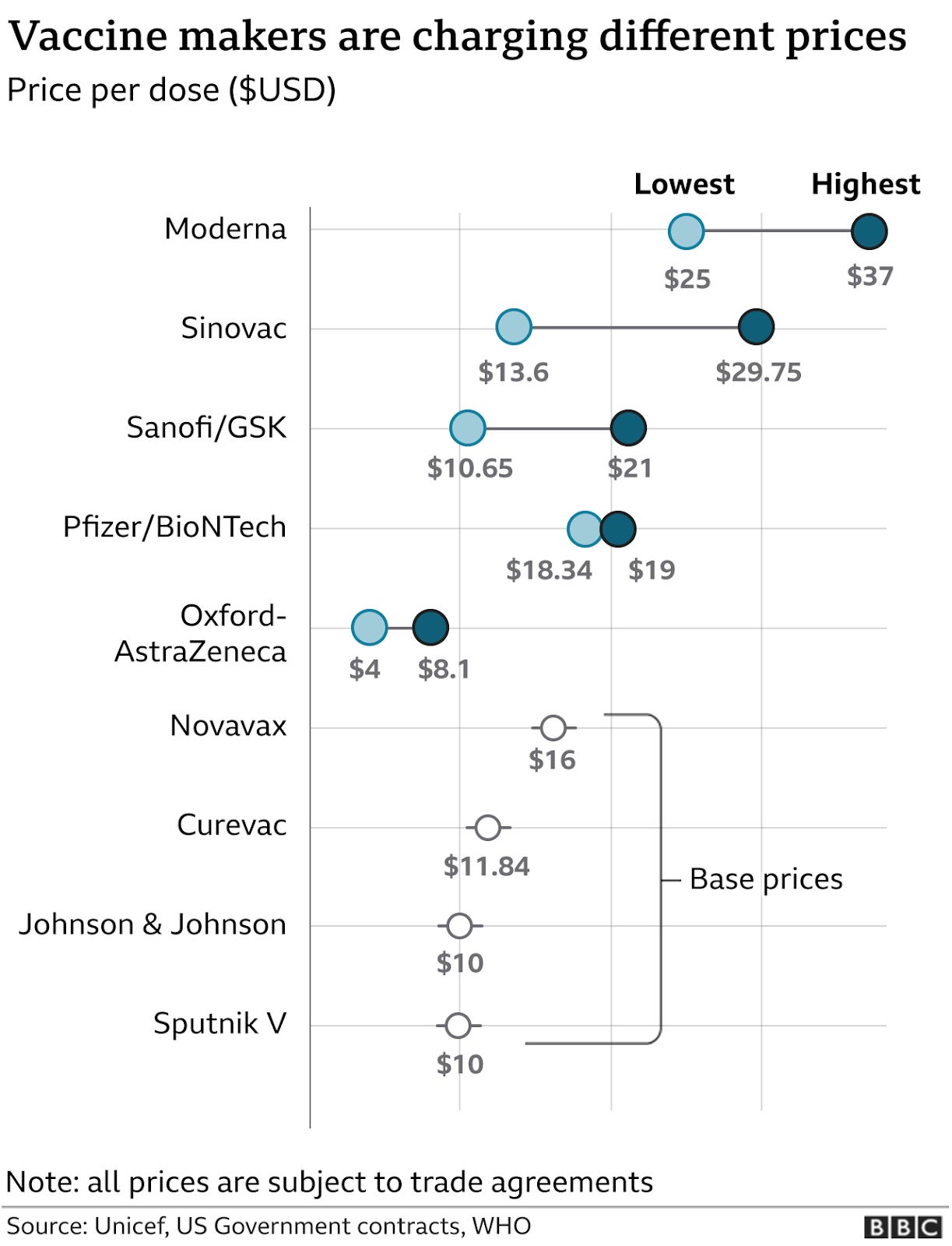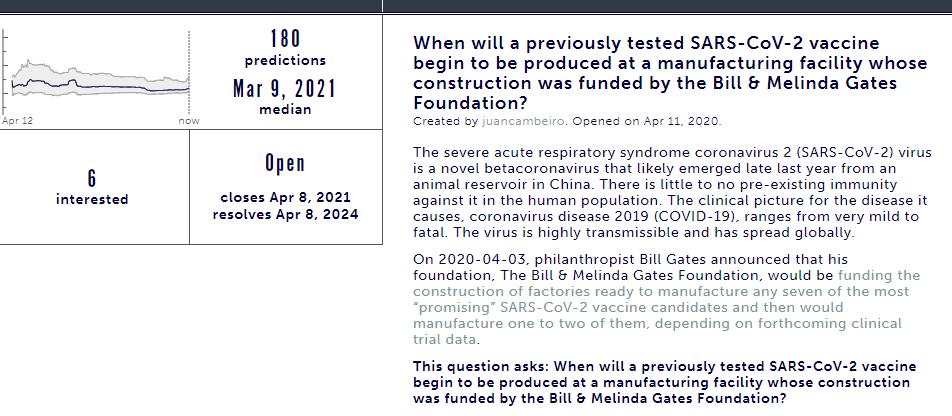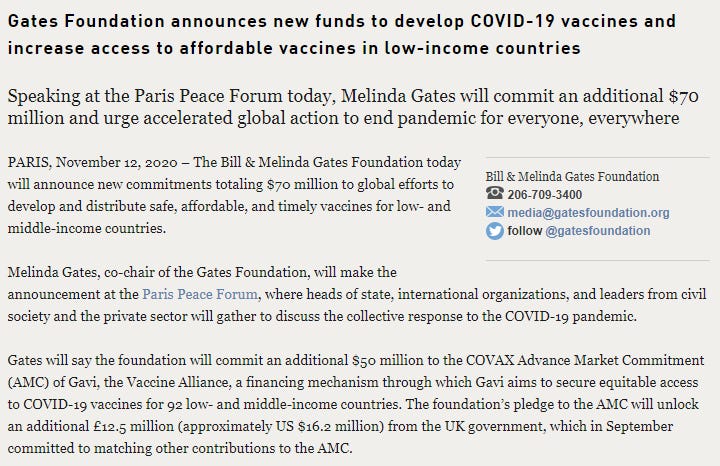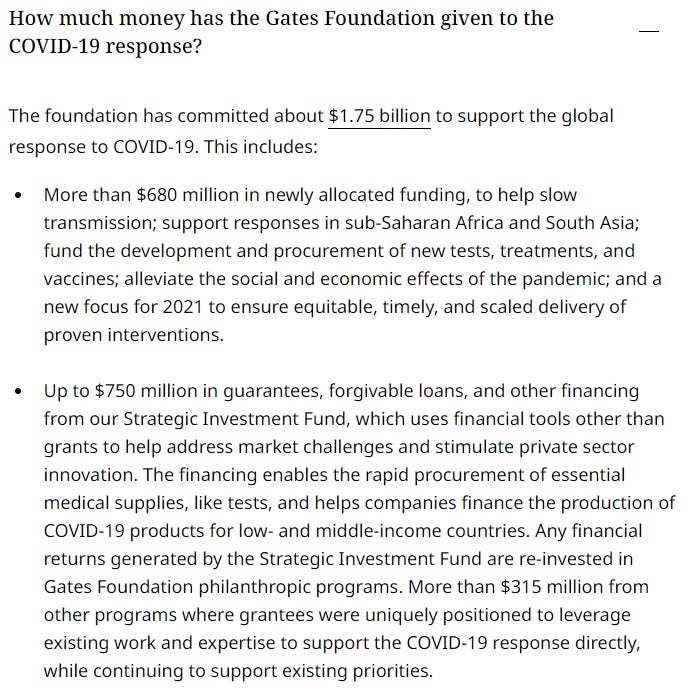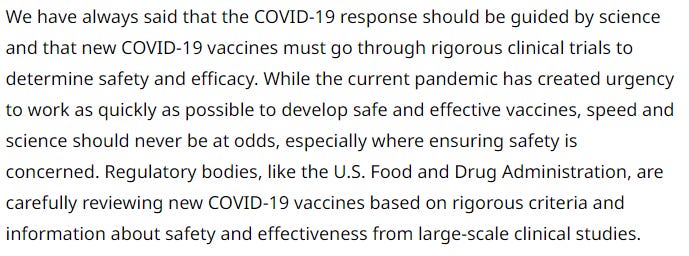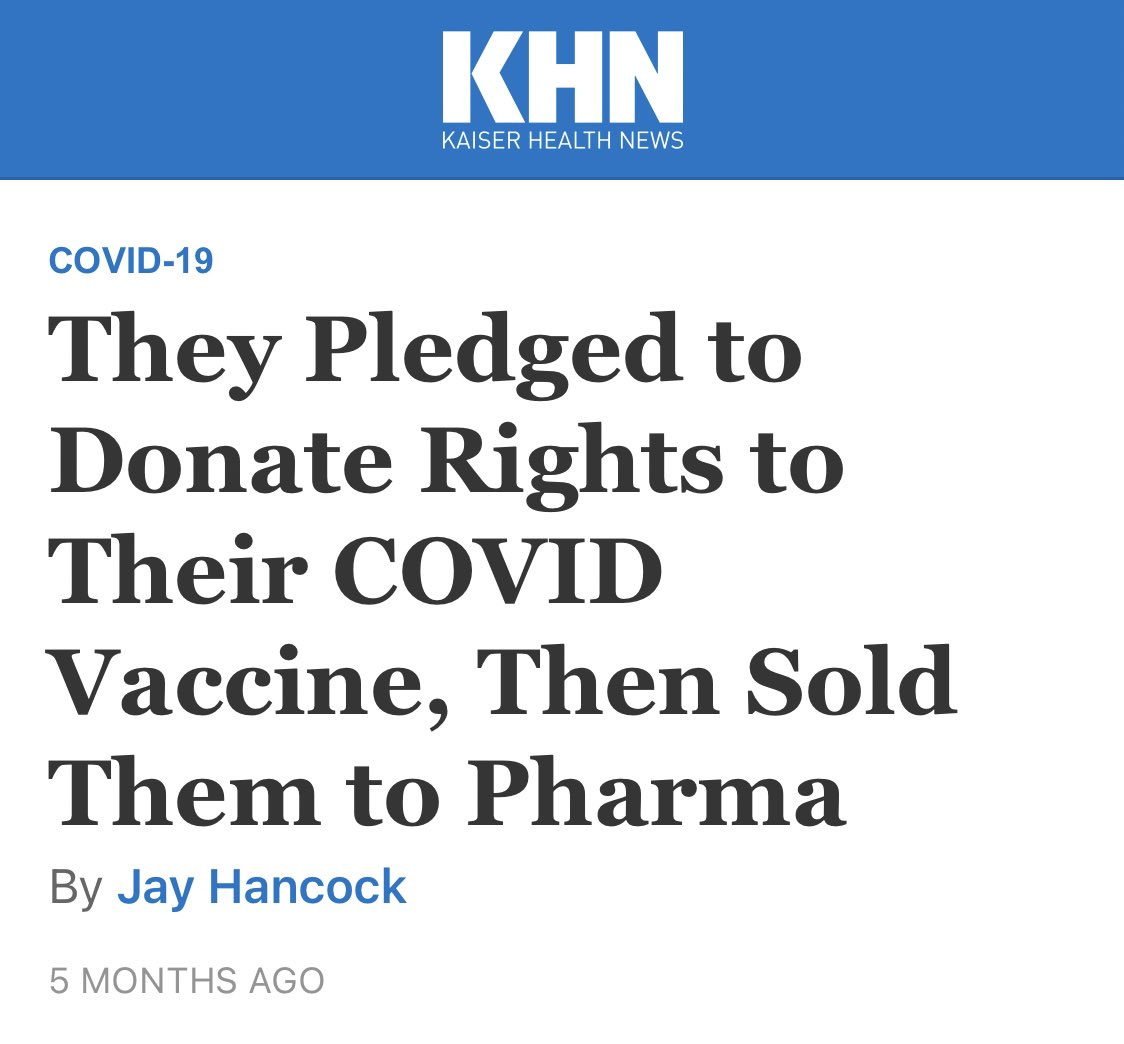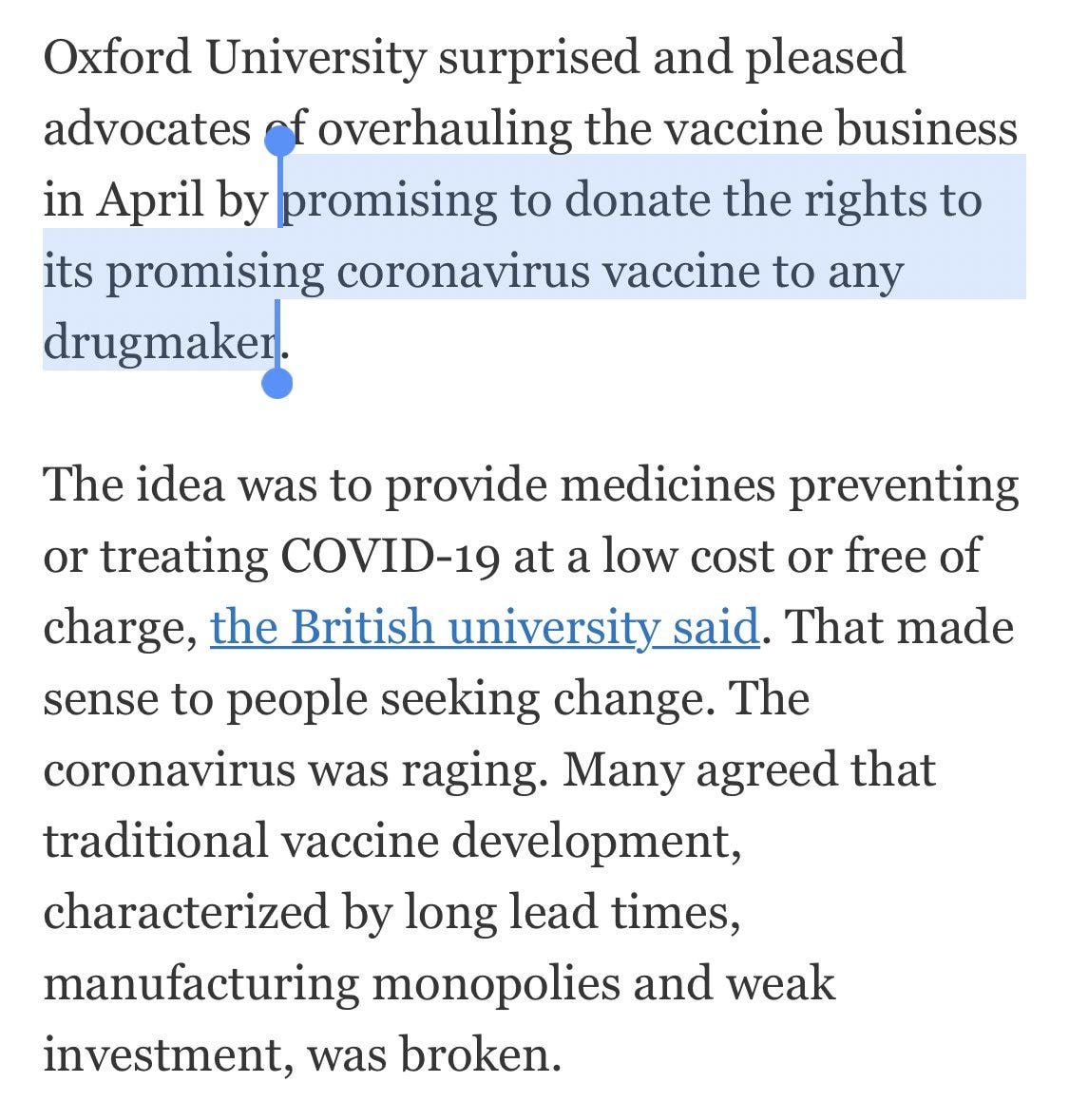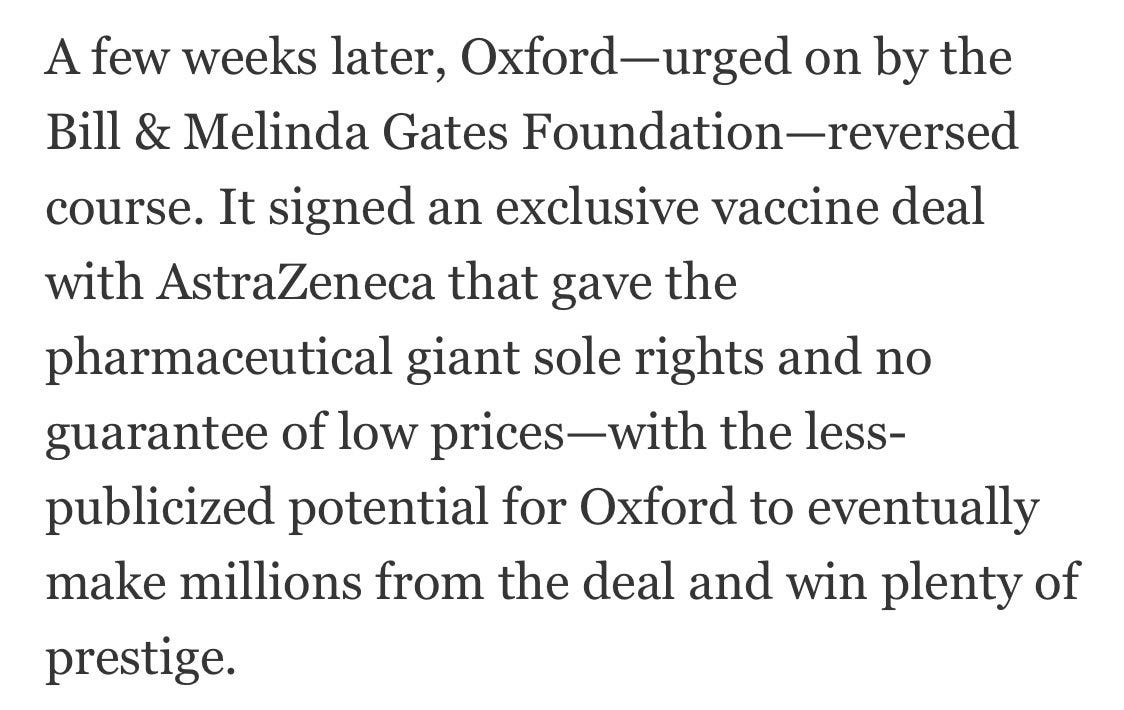Covid: Bill Gates and Vaccine Production
Vaccine production, and in particular vaccine production by Pfizer and Moderna, has languished for want of a few billion dollars, well within the budget of many individual philanthropists. It is an important fact about the world that none of them stepped up and fixed the problem. At most one of them is known to have perhaps made a serious attempt, with that one being Bill Gates.
So what exactly has he been up to, as a longtime proponent (to his credit) of vaccines and vaccination efforts?
I want to be clear: This is not me going after Bill Gates and saying he is bad. This is investigating the question of why it seems that no one with power can do anything useful, and investigating the person who appears to have power who people thought might be doing useful things, and who looks like he is in a strong position to do useful things, with a stated priority and even explicit commitment of spending his money to do exactly the most useful things.
I also want it to be clear that Gates has far from full control over the actions of his foundation, and for reasons he is unwilling or unable to act outside of the foundation, a pattern that seems to be common among the wealthy.
This is not about Gates being unusually terrible. Quite the opposite, he seems unusually well-meaning. Especially for his reference class.
It’s important to note that this was not enough.
Early on Gates was planning on spending billions to ramp up production capacity on seven distinct vaccine candidates, despite not knowing which one will work. That seemed like exactly the right thing to do.
That didn’t end up fully happening. Gates did not do it, as evidenced by this press release which puts total Gates contributions to all Covid-19 efforts prior to the tail end of 2020 at 1.5 billion. Which isn’t enough, and mostly went to other things. And for him, this was definitely a case of ‘someone has to, and no one else will.’
Indeed, no one else did, and these graphics comes from a BBC article asking the question “Will drug companies make bumper profits?” because somehow that’s what everyone cares about:
The “no one else will” part was especially true once Gates said it loudly enough that everyone (at the time including me) vaguely thought he would do it, seemingly without calling on anyone else to help do it, thus taking any remaining pressure off everyone else to do it, given he was now the Reasonable Authority Figure it was now definitively Someone Else’s Problem.
There was even a Metaculus question about this, which hasn’t resolved, and predicts that some facility partly funded by Gates will begin making vaccine within a few months, but hasn’t done so yet:
That market has only about a 6.7% chance this doesn’t happen at all, which seems super low if there is no path that will clearly work.
The comments suggest he did make the non-zero investment in seven options.I couldn’t figure out which facilities he actually funded other than SK Bioscience, but clearly it wasn’t Moderna, Pfizer or AstraZeneca, and the timing here is too delayed to be Johnson & Johnson. And it looks like SK Bioscience only got $3.6 million, with an M, which is helpful but not the thing that we are looking for here.
Here are the other things I could find that he’s been up to:
This seems to essentially be foreign aid to low-income countries, dedicated to vaccine purchases, which presumably partially does increase the amount of vaccine purchased, although it will also be partially offset by reduced other counterfactual vaccine spending getting redirected. Since such purchases are not going to pay a premium for doses, and all doses that are going to be produced are spoken for indefinitely, it won’t speed up vaccine production.
2 (the press release above) was an announcement of an additional $250 commit on December 9th:
Distribution is a problem but the limiting factor is vaccine production. If we could scale up, especially the AstraZeneca and Johnson & Johnson vaccines, that would be far more helpful, and the economic savings from accelerating vaccination in the first world would more than pay for all needed efforts to then accelerate things globally. Yet all these efforts seem directed at third world distribution efforts, where one can pitch oneself and be seen as caring primarily about equity rather than efficiency, thus providing the deniability to provide at least some helpfulness.
That theory can be reinforced by looking at the front of the Gates Foundation website:
Pictured: An old rich straight white man claims that all lives matter.
This plausibly prevents Gates from doing anything that could benefit those in the first world before then benefiting those in the third world, no matter how effective or efficient it might be.
They are spending their bandwidth this week warning about immunity inequality.
It also likely makes it pretty hard to write a ten-figure check to Pfizer or Moderna.
It is a standard Effective Altruist take and a highly reasonable argument to look to save lives in the third world, because you can usually save more lives there for less money. Current inequality creates an opportunity for us to have more leverage and do more good, while this process of putting effort where it has the biggest marginal impact then reduces that inequality. That’s very different from treating the inequality as the problem, rather than my preferred perspective of treating people suffering and dying as the problem, and leads to different choices with different outcomes.
(I also noticed he had an old call for lockdowns to follow a fixed policy across the country (WaPo) which doesn’t seem appropriate given the different conditions that are often in place in different regions or states, that don’t seem mainly to be caused by policy variations. A uniform policy early might have helped but by June seems like it would have backfired even under better conditions. I’m guessing the reception helped push Gates towards inaction and staying quiet.)
Again, it’s all well and good to care about providing care to the third world, much better to do that than to do nothing, but if you focus on the logistics of distribution and on the places that pharma companies do not make money, you are not going to accelerate the production of vaccines.
4: The third link then leads into this detailed list of grants. It looks like (it’s a super long list and you need to scroll through manually so I could have missed something) they gave millions to vaccine development (it’s a category of grant) but I don’t see any major emphasis on vaccine production.
So, something happened that directed the Gates Foundation away from its stated priority of supporting the thing that matters most, towards other priorities that matter less, including mattering less to the third world, since the best way to get them their vaccine doses is to produce enough for everyone as quickly as possible.
It seems perfectly reasonable to have been initially skeptical of mRNA and not fund those efforts in January, it was an unproven technology and that’s a judgment call, but as data came in that got less reasonable, especially with the contacts Gates has access to.
At a minimum, tt seemed clear enough mid-year (let’s say mid-May for Moderna, mid-July for Pfizer) that some combination of Pfizer, Moderna and Oxford had top candidate vaccines, it seems clear that a few billion could have vastly accelerated production, and as far as I can tell, Gates did not make any visible public attempt to spend that money or get others, either in government or other individuals or corporations, to spend that money.
I find it highly implausible that Gates, if he was making an effort to pay attention to developments and gather information (which I assume he was, and if he wasn’t one would ask why he wasn’t), would be unaware that those particular vaccines were probably both safe and highly effective, or that he wouldn’t at least know they were winning the race while having huge potential and potentially working, or that he would have been unaware of the opportunity to spend money to ramp up production, especially since he explicitly (and correctly) was the first loud voice to endorse the concept of spending money to ramp up production in advance in the public discourse, and also pledged to spend to do so.
I also find it impossible that Gates does not understand the urgent need for speed, yet he issues statements like this one on his website, falling in line with senseless public messaging he knows is both false and killing people:
It seems more plausible that the Gates Foundation saw that those vaccines were going to help the first world first, and had corporate backing, and thus considered them to be invalid targets that they weren’t allowed to help.
Then there’s the situation with the Oxford vaccine, which it seems they... kind of... sabotaged?
I’m sure there were good reasons at the time for choosing AstraZeneca, and no one expected them to botch the vaccine trials, or to fail to ramp up production as scheduled. I’m not even saying it’s their fault that they are struggling to ramp up supply or meet the expectations they set. Except it is totally the fault of everyone involved in the sense that they signed an exclusive contract rather than being one of many that was allowed to make the drug.
I’m all for using temporary monopolies as a reward for new discoveries, and allowing companies (and in some cases universities) to profit from it. AstraZeneca is pledging to not make any money from the vaccine until the ‘end of the pandemic’ and therefore giving itself so little incentive to scale up quickly that it actually makes more money by scaling up more slowly, then it scales up slowly, we really really shouldn’t be acting so surprised. What was wrong with the original plan to open source the vaccine to any company that wanted to make it and have them compete to scale up production?
Would the competition have been so intense no one would have done it? That seems highly implausible at best.
So what the hell were Oxford and the Gates Foundation doing here? Why let a pharma company get exclusivity, get most of the glory and effective credit, and give them an active incentive to slow roll production, rather than the option to foster competition?
If the issue was that AstraZeneca paid them money for a vaccine they can’t make money off of except with a slow roll, I don’t know the terms of that deal, but Gates should have been putting together a competitive compensation package, rather than urging Oxford to make the deal. Seriously, if you need to, you can straight up Cut Lex Luther a Check.
It’s almost as if some invisible force is pushing decisions towards being unhelpful.
Gates has what look like easy answers available here, but they’re not easy answers, because there are massive forces pushing against him, including attempts to alter his perception of reality so the easy answers don’t look like the things to do, and also active forces that threaten to punish him for trying to implement the easy answers or other intentionally helpful actions.
Gates is already the target of massive amounts of ludicrous conspiracy theory regarding vaccines. He literally has to put in his FAQ that he isn’t planning to microchip people. Perhaps that’s a large part of how the message was implicitly given to him by the world to stop being seen as being motivated by a desire to be helpful, or else.
It could well be wise of him to respect such forces. He’s an old, rich, immensely nerdy straight white male who made his fortune off a product most closely associated with an annoying talking paperclip and being broken up as an illegal monopoly, with enough money and prestige to make him be seen as a threat. Again, there’s already a double digit percentage of Americans who think he’s part of a (completely nonsensical and nonexistent) evil plot to microchip them, among other things. I understand why he’s afraid, and whether or not he ever reads this, I want him to know that I sympathize and wish him the best.
And also that it’s not too late to help ramp up that vaccine production.
(Note: This was originally part of the weekly post, but stands on its own and is not time sensitive, so I have made it to its own post. The full post will go up on schedule later today.)



